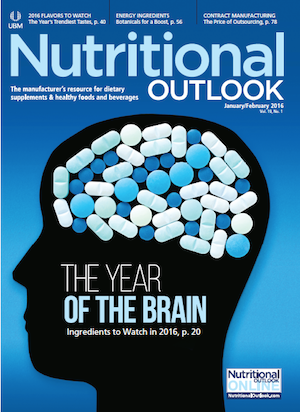Probiotic Firms Venture Further Into the Allergy Market
Probiotic benefits for allergic conditions like eczema are relatively well researched, but newer studies on food, pollen, and pet allergies promise new opportunities.
Photo © iStockphoto.com/Zhenikeyev

The global probiotics market is booming, but expanding probiotics into different health areas is key to further growth. Allergies are a big interest area for suppliers, and for good reason; new research is propelling probiotics forward. “We expect the probiotic market to increasingly target allergy,” says Maj Britt Larsen, PhD, scientific advisor for probiotic supplier Chr. Hansen (Hørsholm, Denmark).
Probiotic benefits for allergic conditions like eczema are relatively well researched, but newer studies on food, pollen, and pet allergies promise new opportunities, with focus ranging from proactive protection in infants to tackling hay fever in adults.
Infant immune health remains one of the most promising areas so far for probiotics aimed at allergies. The theory goes that allergies are most easily thwarted at an early stage of life, before obvious symptoms arise.
“For the development of an infant’s immune system, time in utero and two years after birth are of crucial importance,” says Peggy Steele, global product manager of probiotics, DuPont Nutrition & Health (Madison, WI). “Balanced development of the immune system is associated with protection from allergic diseases and atopic eczema.”
Last October, DuPont added the new probiotic product Protect EarlyLife to its Howaru line. It contains the Lactobacillus rhamnosus HN001 strain and is meant for pregnant women and children aged 0–2 years.
A 2013 study1 explored the allergic response of children who supplemented with DuPont’s HN001 daily in utero and from birth until two years of age. Researchers found that at six years of age, children who had taken the probiotic as infants showed a significant reduction of allergic skin-prick test sensitization when compared to a placebo group. The skin-prick test measured reactions to egg white, peanut, cow’s milk, cat pelt, dust mite, and mixed grass pollen.
Adults with existing allergies may also stand to benefit from probiotic supplementation. A recent study2 of Chr. Hansen’s LP-33 (Lactobacillus paracasei-33) suggested that adults who reported persistent allergic rhinitis (AR) symptoms during grass pollen season experienced significant improvements to quality of life after supplementing with LP-33.
After five weeks of supplementation, the LP-33 group posted significantly lower scores on the Rhinitis Quality of Life analysis compared to a placebo group. Researchers also observed a consistent improvement of ocular symptoms in the experimental group, but no difference in nasal symptoms.
Additionally, Chr. Hansen’s LP-33 has also been found to reduce allergic rhinitis symptoms in children and adolescents.3
With such solid studies as these, the power of probiotics is nothing to sneeze at.
Read more:
Can Dietary Supplements Really Help Control Allergies?
2016 Ingredient Trends to Watch for Food, Drinks, and Dietary Supplements: Egg Replacers
Michael Crane
Associate Editor
Nutritional Outlook Magazine
michael.crane@ubm.com
References:
1. Data includes natural supermarkets (excluding Whole Foods) and conventional multi outlet channels. Comparison of 52 weeks ending 11/1/15 with 52 weeks ending 11/2/14. Based on primary ingredients in supplements. Ashwagandha figures for natural channel only.
2. Hellhammer J et al., “A soy-based phosphatidylserine/ phosphatidic acid complex (PAS) normalizes the stress reactivity of hypothalamus-pituitary-adrenal-axis in chronically stressed male subjects: a randomized, placebo-controlled study,” Lipids in Health and Disease, vol. 13 (July 2014): 121
3. Massa J et al., “Vitamin D and actigraphic sleep outcomes in older community-dwelling men: the MrOS sleep study,” Sleep, vol. 38, no. 2 (February 2015): 251-257
4. Beydoun MA et al., “Serum nutritional biomarkers and their associations with sleep among US adults in recent national surveys,” PloS One, vol. 9, no. 8 (August 2014): e103490


























